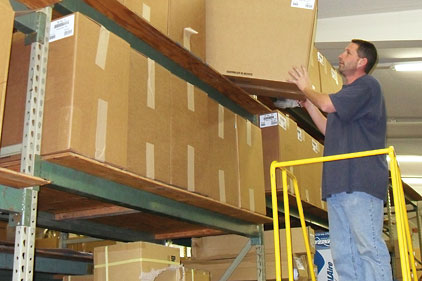Economic Changes Make a Difference
The economy has changed the way many distributors do business, especially in the last five years. With change comes an adjustment period both for the contractor and the distributor. Take Greg Crumpton, president and founder of AirTight in Charlotte, N.C., for example. As a commercial contractor he deals with more than one distributor. He has noticed a change in some of the distributors his company deals with.
“More and more it seems there is less stock and inventory at some distributorships,” Crumpton explained. “Instead of hearing, ‘We have it in stock,’ I am more often hearing, ‘We will have to order that for you.’ ”
AirTight’s No. 1 partner is CC Dickson, a multi-branch distributor with its corporate headquarters in Rock Hill, S.C. According to Crumpton, it is the distributor’s excellent attention to customer service that sets them apart.
“They ensure the word ‘yes’ is their first thought as opposed to ‘no’ or ‘I will have to check,’” he said. They get it, they help us, and Terry Blackwell, our regional manager from CC Dickson, goes way above and beyond to serve us well. I really can’t ask for any more.”
Martin Hoover is the president of Empire Heating and Air in Atlanta. His company has had different experiences with the multiple distributors it has used over the past five years.
“We have seen price cutting, efforts to be more competitive, less spiffs, and some have added fees and charges for delivery, gas, environmental, etc.,” said Hoover. “Even though many per unit prices have gone down, costs have actually gone up.”
He also observed that most distributors in his area are adding more products to their lineups in what he considered to be an effort to have broader appeal in the market.
Matthew Kuntz’s main supplier has brought in more lines to carry to help gain more market share as well.
“The distributors we work with seem to be more customer-focused due to the downturn in business. They are more concerned when sales slide to make sure you are happy,” explained Kuntz, vice president of Jupiter Tequesta Air Conditioning and Heating Inc. in Jupiter, Fla. “The company has also been providing more support. It seems like the sales reps have less clients so they can provide better service.”
Taking Advantage of Training
For many distributors, training is a part of their business culture and an added-value service they provide to contractors. Each distributor conducts training differently and each contractor participates at different levels.
Russ Donnici is a contractor and the president of Mechanical Air Service Inc. in San Jose, Calif. He provides advanced training for his technicians mostly in house and doesn’t often have a need for the basic training provided.
“If the training being offered is of a value to us, we use the distributor — it really is cost effective,” he said.
Although Kuntz does in-house training as well, he likes to send his technicians to training at a distributor so that the technician isn’t always on the job while learning something new.
What many contractors seemed to agree on was that distributor training offerings were beneficial to them in some way and that they were glad to participate in what made sense for their contracting firm.
Proactive Partnerships
Another word for relationship is partnership. Both terms imply a willingness to meet in the middle and work towards a mutually beneficial end. This proactive approach is something that HVAC contractors can find to be rewarding. Roger Grochmal is the president and CBO of Atlas Care, a contracting firm based in Toronto. He approached his distributors with initiative and proactively seeks ways to partner with them.
“We have developed some special relationships with our core distributors here in the Toronto area,” he said. “Overall, we look to work with distributors who take the time to get to know us and why we are different. We expect them to be sensitive to our needs and care that we make money.”
One of the initiatives the company worked on was to develop a series of installation kits for furnaces and air conditioners that could be ordered as a single SKU and not have to inventory all the individual parts.
“We are currently working with one distributor on a program of material fulfillment to restock our service trucks each night,” said Grochmal as he explained another initiative. “They restock the trucks, return work orders and funds collected, and take out the garbage.”
Atlas Care continues to look forward and advance its relationship with different distributors. There are plans in the works to possibly provide demand delivery of repair parts, as well as deliver installation equipment and materials direct to the homeowners. There is talk of becoming paperless as well.
“We are not warehousing and logistics experts, and it works for us to have distributors who want to work with us to improve our customer service, streamline our processes, and reduce our costs as well as our investment in inventory.”
The contractor-distributor relationship can be a delicate balance. Working from both sides through professional communication, however, can help contractors and distributors create a well-balanced partnership that is mutually beneficial and successful.
To share your contractor-distributor stories, post a comment below.
Publication date: 10/1/2012



Report Abusive Comment